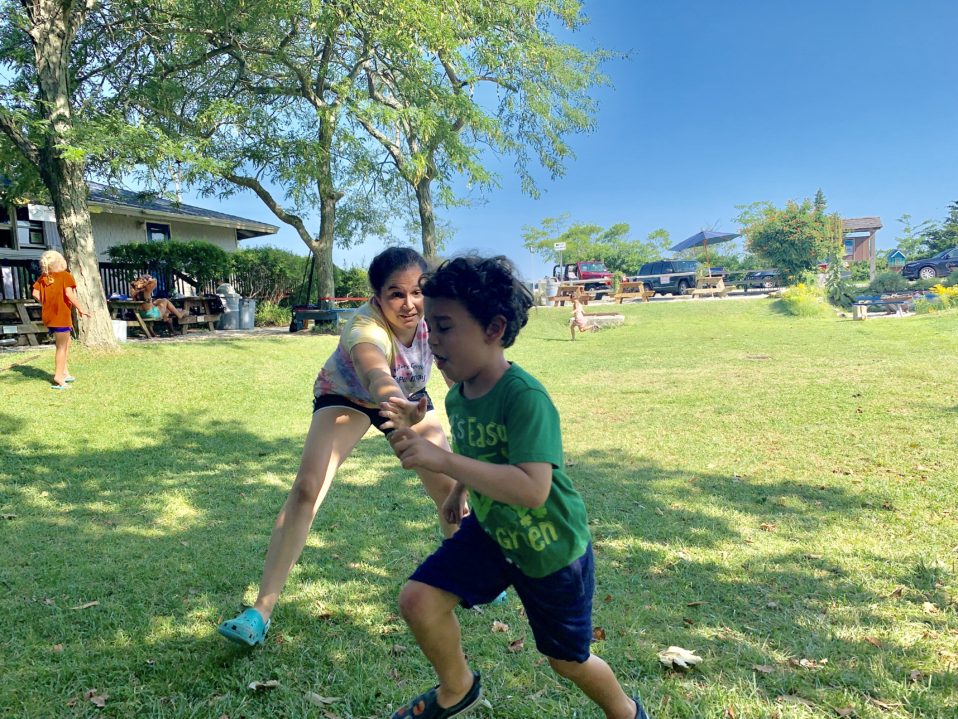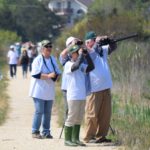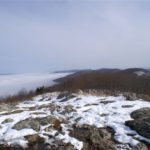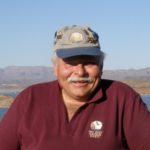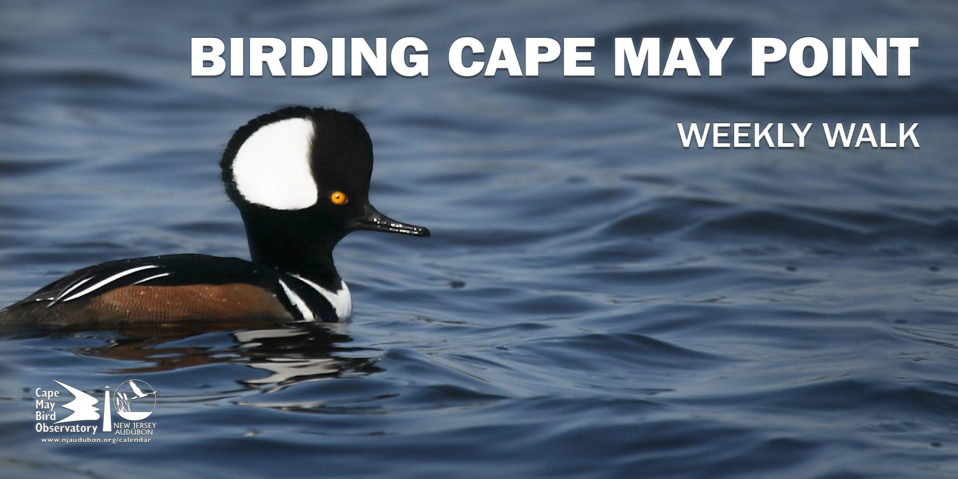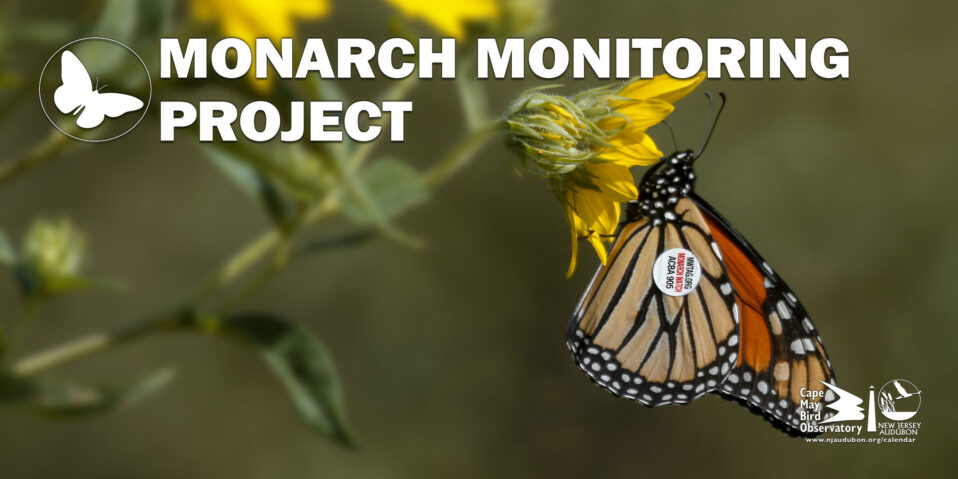Reflections on The Nature Center of Cape May’s Summer Camp
Summer is a time for growth and change in wildlife and in ourselves – especially our children. The days are long, the weather is fair, school is out, and the outdoors finally have the opportunity to become what they always were for most of our human history: a classroom.
From September-June, as city dwellers in Brooklyn, NY, my husband and I try our best to give our children, who are 5 and 3, meaningful encounters with the natural world. Family time on weekends and playdates after school involve trekking our kids through the acreage of Prospect Park and through the East River beaches and play areas at Brooklyn Bridge Park, where the kids can climb trees, dig holes in the dirt, roll in the grass and count boats in the water. But because of the relentless pace of work and school, there are just as many days where we’re forced to do what every parent does sometimes, surrender. We substitute real experiences outside with an episode of Wild Kratts or another show courtesy of PBS Kids, which though entertaining and educational, are on a screen nonetheless. And I know I’m not the only mother who hates the glazed, entranced look on her children’s faces as they stare into the abyss of a device, even the executives in Silicon Valley are doing their best to keep their kids from them.
But then summer comes and everything changes. We all seem to stretch and exhale. My husband and I, both teachers and artists, trade our work days at school in for family fun (a different sort of hard work as any parent knows), and for four glorious weeks we get to call Cape May our home, making a small corner of my parents’ internet and cable-free house our own. These weeks are like resetting a clock. Days begin to order themselves with the rising and setting of the sun instead of calculations regarding morning commutes, and most importantly, thanks to The Nature Center of Cape May’s Summer Camp Program, our struggles to provide meaningful encounters with the wild disappear as our kids start the day each morning with camp.
Every Monday-Friday morning, we bike the curious streets of Cape May and arrive at a magical little piece of earth along Cape May Harbor known as The Nature Center, where wild flowers frame the visitor center and bees and butterflies work busily out front. Behind this beautiful building and dotting the perimeter of the wide grassy lawn at its side are the outdoor classrooms that campers call their homebase each day from 9-12. My son trots happily to his little hut, barely offering me a goodbye before diving directly into whatever activity awaits him at the table, while Bernadette, being 3, usually attempts to show me some puppy eyes, but soon she is also engaged. That is when my husband and I pedal as fast as we can to whatever hotel or coffeeshop we choose to hideaway in to work on our writing that day, both of us midway through novels.
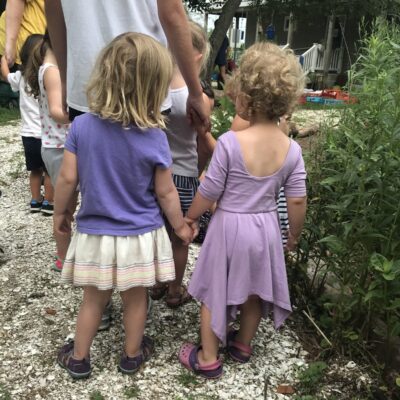
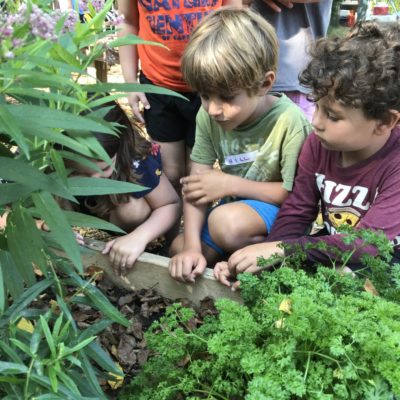
For three hours a day, everybody wins. While my husband and I are taking some much needed time to ourselves, our kids are captivated by creative play, learning about the natural world through hands-on art projects, outings to the waterfront and gardens, and educational camp games. Each week the theme and nature of the games and crafts changes. “Sharks and minnows” becomes “Snakes and mice.” A study of reptiles and camouflage leads to “Chameleon Hide and Seek,” and a game of pirates leads to a discussion of how people managed to survive so long on ships in the first place, and how you could use everyday materials around you to build a raft if you needed to. Then the kids get to build a raft and test it themselves.
My son, who enters kindergarten this September, is in his second year of the Cape May Nature Center’s Camp Program, and since he is older, the impact on these weeks of nature study is most visible in him. We’ve watched the Nature Center help bring the wildlife that is all around him, both here and in New York and everywhere he goes, into greater focus. This summer, like last, I can see the activities, questions and concepts that begin each morning at camp carrying over into the rest of our day. Whether we find ourselves observing toads, frogs, turtles and butterflies along the trails at Cape May Point State Park, or collecting buckets full of mole crabs and clams in catch-and-release aquariums at the beach, Simon’s curious smile and ability to filter out the world and just stop and focus is inspiring to watch. One day he and I just hid behind a tree on the path and watched a snake stalk a bird for who knows how long, whispering to one another about what we thought would happen. Another day we tracked a praying mantis, and when we finally had to leave, the way he said goodbye to it reminded me of the way I’ve said goodbye to random travelers I connected with in my backpacking days. He’d made a friend he’d never see again, but the encounter had, in whatever big or small way, changed his tiny life.
His enthusiasm, and the enthusiasm of other birders and nature-lovers we cross paths with each day, is contagious. And although climate change looms large in every conscious person’s mind, I find spending time at the Cape May Nature Center a hopeful enterprise. The symbiosis of each ecosystem is a miraculous thing, and learning to love it is the first stage of learning how to protect it and cultivate it wherever you go. The landscape of Cape Island is a powerful classroom. Water and life are everywhere down here, and the counselors, camp director, executive director, and amazing staff of fellows and volunteers at The Cape May Nature Center inherently see and celebrate these gifts the earth keeps giving us, the sustenance of our lives. The kids who spend time there start to learn to see it too. Forget that glazed look from another Netflix program automatically starting in six more seconds, the wild world is a show you can’t tear your eyes from, there is another dragonfly, who just ate a spider, who was in the middle of spinning a web and got popped from its leaf because of a squirrel stealing seeds from a birdfeeder.
The Nature Center of Cape May is a place to process all of these encounters, not just for kids, but for curious kids of all ages, like me, a regular old Jersey-girl-turned-New Yorker, whose schooling in the natural world never went much farther than a bucket of acorns or shells, but who understands what is at stake, and who is ready to understand and admire and just plain see, who would like know the differences between shrubs, grasses, berries, bees, birds, butterflies, bugs, reptiles, rocks and shells, sand and soil – all of it, or at least what I can.
The outdoors is our greatest classroom, but as a species sometimes it feels like we’ve forgotten so much about it that before we even get the genus and food chain straight, we need to just be taught to remember. I feel so lucky that my family has stumbled into this place. As a teacher married to another teacher, I understand how critical a learning environment is in establishing a nurturing, curious space for a mind to explore, relax, and listen. Half of teaching isn’t even about what you say to a class, but the space you provide for a student to think and grow. The Cape May Nature Center camp just gets it. I see my kids living this reality and I am learning through them. They sit on a super huge chainsaw sculpture of a caterpillar, mix up dirt in an outdoor mud kitchen, contemplate roly poly bugs they dig up in the yard, watch the pollinators frolic through the flowers, or just stare out at the waves of the harbor as they lap against the shore. None of this is a waste of time. It is time itself, the way it has always been, a slow evolution from one season to another, one summer to the next, migrating from one place to another until you go from kid, to parent, to grandparent or whatever else. But I don’t need to explain that to my kids just yet. When you are awake to the wilderness it is all implied. It reveals itself one bug or butterfly or camp day at a time, and it is way more valuable than any episode on Netflix, because even if you want to, you can’t watch it over again.
Bio: Lauren Belski teaches writing at Brooklyn College and is the host and curator of The Brooklyn Writers Space Reading Series. Learn more about her at www.laurenbelski.com.




